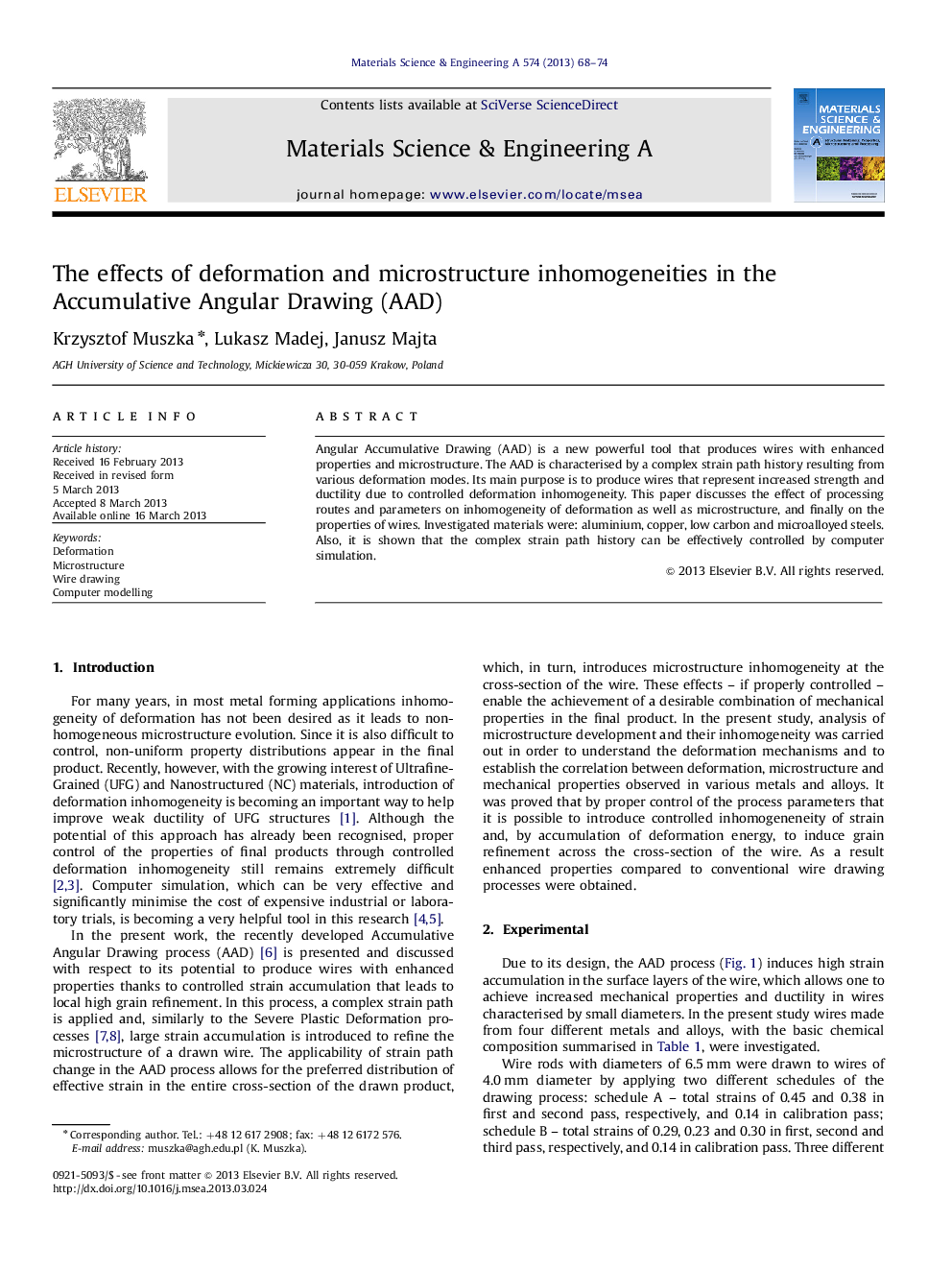| Article ID | Journal | Published Year | Pages | File Type |
|---|---|---|---|---|
| 1576013 | Materials Science and Engineering: A | 2013 | 7 Pages |
Abstract
Angular Accumulative Drawing (AAD) is a new powerful tool that produces wires with enhanced properties and microstructure. The AAD is characterised by a complex strain path history resulting from various deformation modes. Its main purpose is to produce wires that represent increased strength and ductility due to controlled deformation inhomogeneity. This paper discusses the effect of processing routes and parameters on inhomogeneity of deformation as well as microstructure, and finally on the properties of wires. Investigated materials were: aluminium, copper, low carbon and microalloyed steels. Also, it is shown that the complex strain path history can be effectively controlled by computer simulation.
Related Topics
Physical Sciences and Engineering
Materials Science
Materials Science (General)
Authors
Krzysztof Muszka, Lukasz Madej, Janusz Majta,
